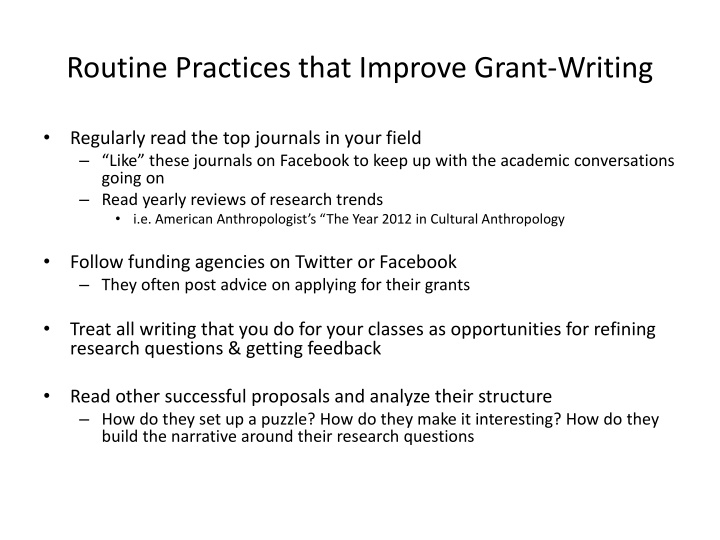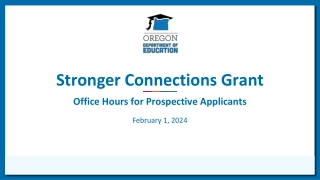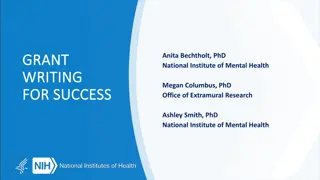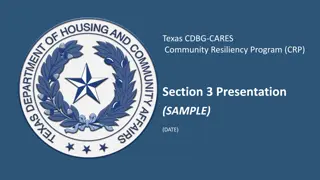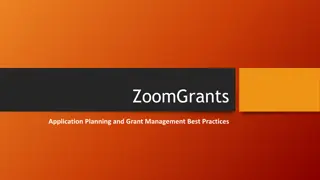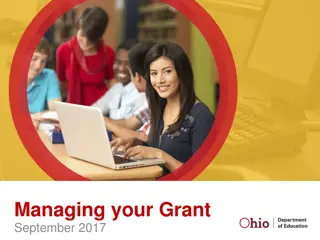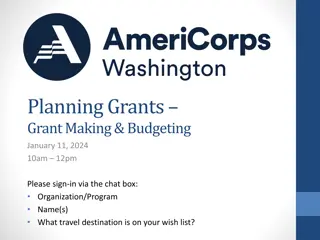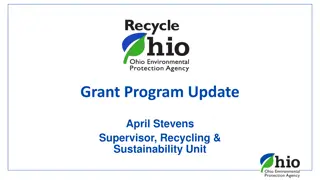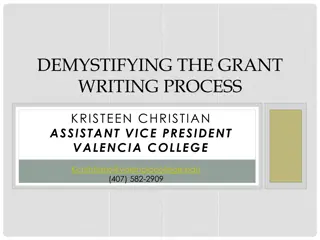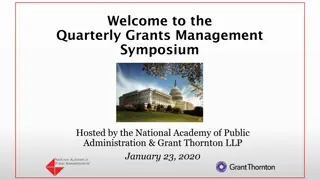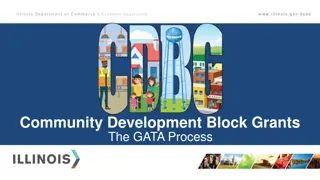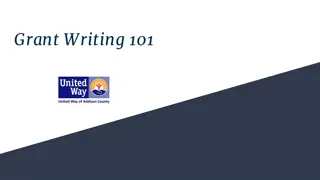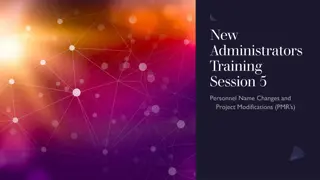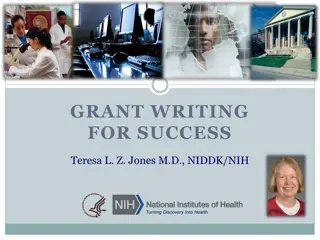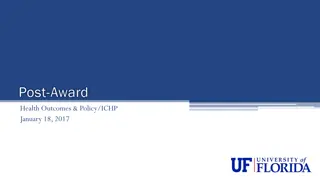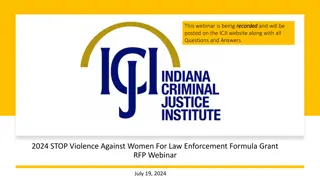Best Practices for Grant Writing Success
Improve your grant writing skills by reading top journals, following funding agencies on social media, analyzing successful proposals, organizing funding information, and working effectively with advisors. Specific tips for Fulbright-Hays and NSF Dissertation Improvement Grants are included.
Download Presentation

Please find below an Image/Link to download the presentation.
The content on the website is provided AS IS for your information and personal use only. It may not be sold, licensed, or shared on other websites without obtaining consent from the author.If you encounter any issues during the download, it is possible that the publisher has removed the file from their server.
You are allowed to download the files provided on this website for personal or commercial use, subject to the condition that they are used lawfully. All files are the property of their respective owners.
The content on the website is provided AS IS for your information and personal use only. It may not be sold, licensed, or shared on other websites without obtaining consent from the author.
E N D
Presentation Transcript
Routine Practices that Improve Grant-Writing Regularly read the top journals in your field Like these journals on Facebook to keep up with the academic conversations going on Read yearly reviews of research trends i.e. American Anthropologist s The Year 2012 in Cultural Anthropology Follow funding agencies on Twitter or Facebook They often post advice on applying for their grants Treat all writing that you do for your classes as opportunities for refining research questions & getting feedback Read other successful proposals and analyze their structure How do they set up a puzzle? How do they make it interesting? How do they build the narrative around their research questions
Gather & Organize Information Look for funding sources for all stages of graduate school i.e. pre-candidacy, fieldwork, dissertation writing Identify all possible funding agencies and make a calendar with deadlines Note if you need transcripts, language exams, etc. Note earlier campus deadlines for Fulbright deadlines Some grants may have two grant-awarding deadlines (NSF) Plan for IRB deadlines Share this calendar with your committee members and set up deadlines with them for submitting drafts.
Good Practices for Working with Advisors/Committees Recommendation letters Ask for letters one month in advance when possible Ask if recommenders would like reminder emails Offer to provide drafts when you request letters Sending drafts Use descriptive email subject headings e.g. Ashley NSF Draft 11.13 Name the document with your last name, the name of the grant, and the date Put the date of your draft in the header of the document Acknowledge receipt of feedback
Fulbright-Hays KEY: Address the country-specific question: Why is studying this question in this place significant? You must hit every point They score you numerically and you must explicitly address everything that they ask for Narrative Statement of the Research Problem, Theoretical Framework & Significance, Methodology & Research Plan, Preliminary Research, Dissemination of Findings
NSF Dissertation Improvement Grants Key: 3x3 strategy: 3 questions, 3 literatures, 3 primary methods components ALL explicitly connected Methodology must be carefully described and should clearly respond to research objectives Your reader should not only be able to imagine what you will be doing every day, but why you will be doing it (what will you be listening for? Who are you interviewing and why? What are you looking to learn? How would you know you have learned it? What will you be listening for? Narrative Elements Statement of the Research Problem, Review of the Literature, Research Objectives, Preliminary Studies, Research Design, Data Management & Analysis, Significance (Intellectual Merit &Broader Impact)
